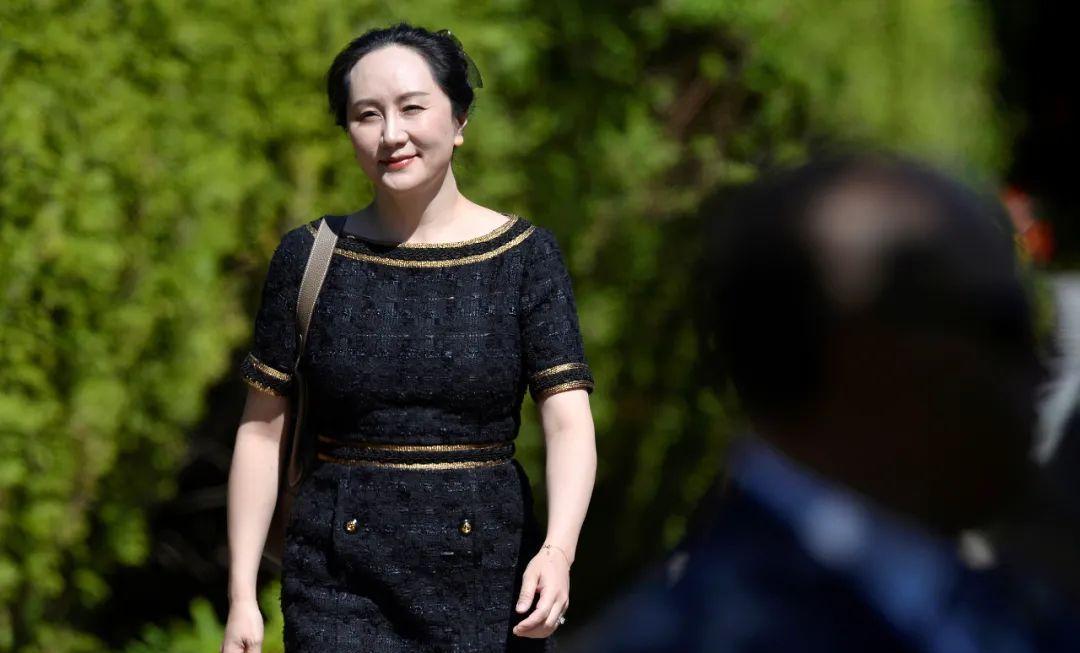Comprehensive Reuters and the Vancouver Sun reported that the Supreme Court of British Columbia, Canada, made a ruling on the confidential financial documents obtained by Meng Wanzhou from HSBC and submitted to the court on the 24th local time, and the Canadian court rejected Meng Wanzhou's request to prohibit the disclosure of relevant documents on the grounds of violating the principle of "open trial".

Prior to this, Meng Wanzhou's team reached an agreement with HSBC in the Hong Kong court to prohibit the disclosure of documents obtained by his legal team from HSBC. It's unclear what documents Huawei obtained from HSBC, but defense lawyers point out that the documents are related to Meng's case. Huawei Canada issued a statement saying that accepting this decision can make the truth in the document public. The Government of Canada and HSBC have not responded.
The hearing on Meng Wanzhou's extradition case is now scheduled to end in late August, and judging by the current situation, the situation is somewhat unexpected.
It can be clearly said that the essence of the Meng Wanzhou case is a political event cloaked in a legal shell. Meng Wanzhou was convicted by a Canadian court of double criminality as "fraud". In fact, however, if the relevant provisions of the U.S. Sanctions Act are not applied to supplement the meaning of loss in the constituent elements of the Canadian fraud offence, the so-called fraud against HSBC can hardly be found to have caused actual losses to HSBC.
That is to say, Meng Wanzhou's behavior was originally difficult to be recognized as a fraud crime under the Canadian judicial system, and it was fundamentally unable to meet the standard of double criminality.
In addition, due to the natural geographical advantages and political ties between the United States and Canada, the two countries have a rich history of extradition cooperation. According to Canadian media statistics, from 2008 to the present, of the 798 cases in which the United States has requested Canada's extradition, Canada has only refused 8 times. The recent growing political ties between the United States and Canada have further deepened the unfavorable situation in Meng Wanzhou's extradition case.
Although the current situation of Meng Wanzhou is not very clear, the complexity of the extradition process itself may bring some light to the final direction of Meng Wanzhou's case. The extradition procedure itself is a very complex process, involving not only legal issues but also other political elements.
Extradition generally adopts a "double check system", and under Canada's extradition law, the Minister of Justice of Canada will conduct another administrative review of the case after the extradition hearing and make a final decision on whether to extradite. In administrative review, political factors are an important factor affecting the outcome of the review, and the minister of justice has a lot of discretion to refuse to extradite Meng Wanzhou to the United States on unfair or oppressive grounds after assessing the political impact of the case.
Meng Wanzhou has been detained in Canada for more than two years, and the road back to China is long, and she has become a victim of the struggle between major powers.
Canada is also well aware of its role and has willingly become a thug and accomplice of the United States, involved in the vortex of this "geopolitical struggle". This malicious arrest of Meng Wanzhou has set an extremely bad precedent and also unveiled the hypocrisy of Western countries where interests are paramount.
How China can stand out in this encirclement and suppression also needs to be prepared to fight a protracted war, proceed from political and judicial aspects, and make full use of judicial procedures, so as to gain the hope of willow and dark flowers.